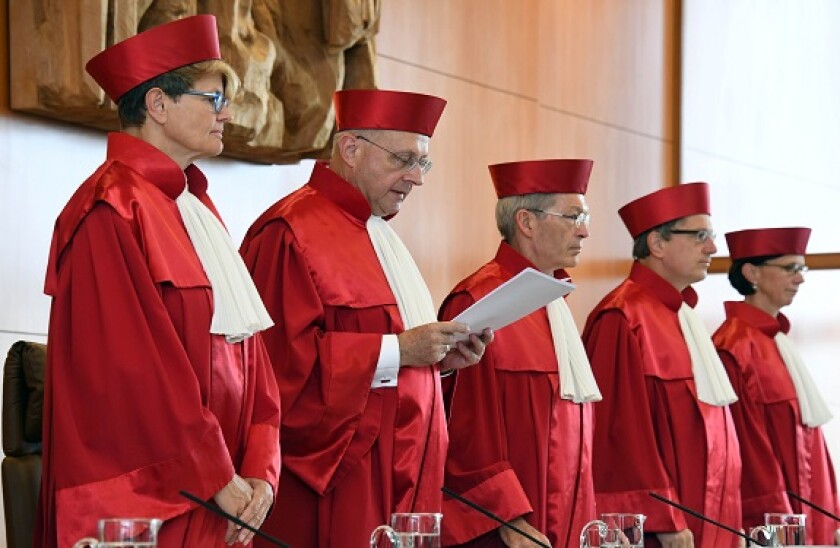German court fires warning shot at ECB QE programme

Germany's Federal Constitutional Court ruled on Tuesday that, while it was not illegal for the Bundesbank to participate in the the European Central Bank’s Public Sector Purchase Programme, the country's central bank may not participate in it unless the ECB can provide a thorough impact assessment. The decision rejected an earlier verdict by the Court of Justice of the European Union.
Unlock this article.
The content you are trying to view is exclusive to our subscribers.
To unlock this article:
- ✔ 4,000 annual insights
- ✔ 700+ notes and long-form analyses
- ✔ 4 capital markets databases
- ✔ Daily newsletters across markets and asset classes
- ✔ 2 weekly podcasts






